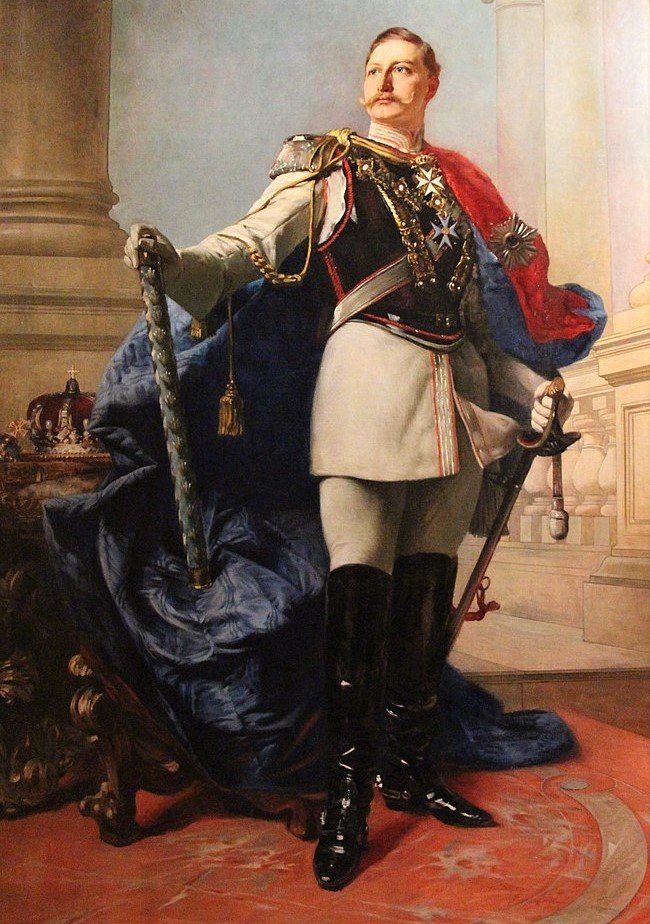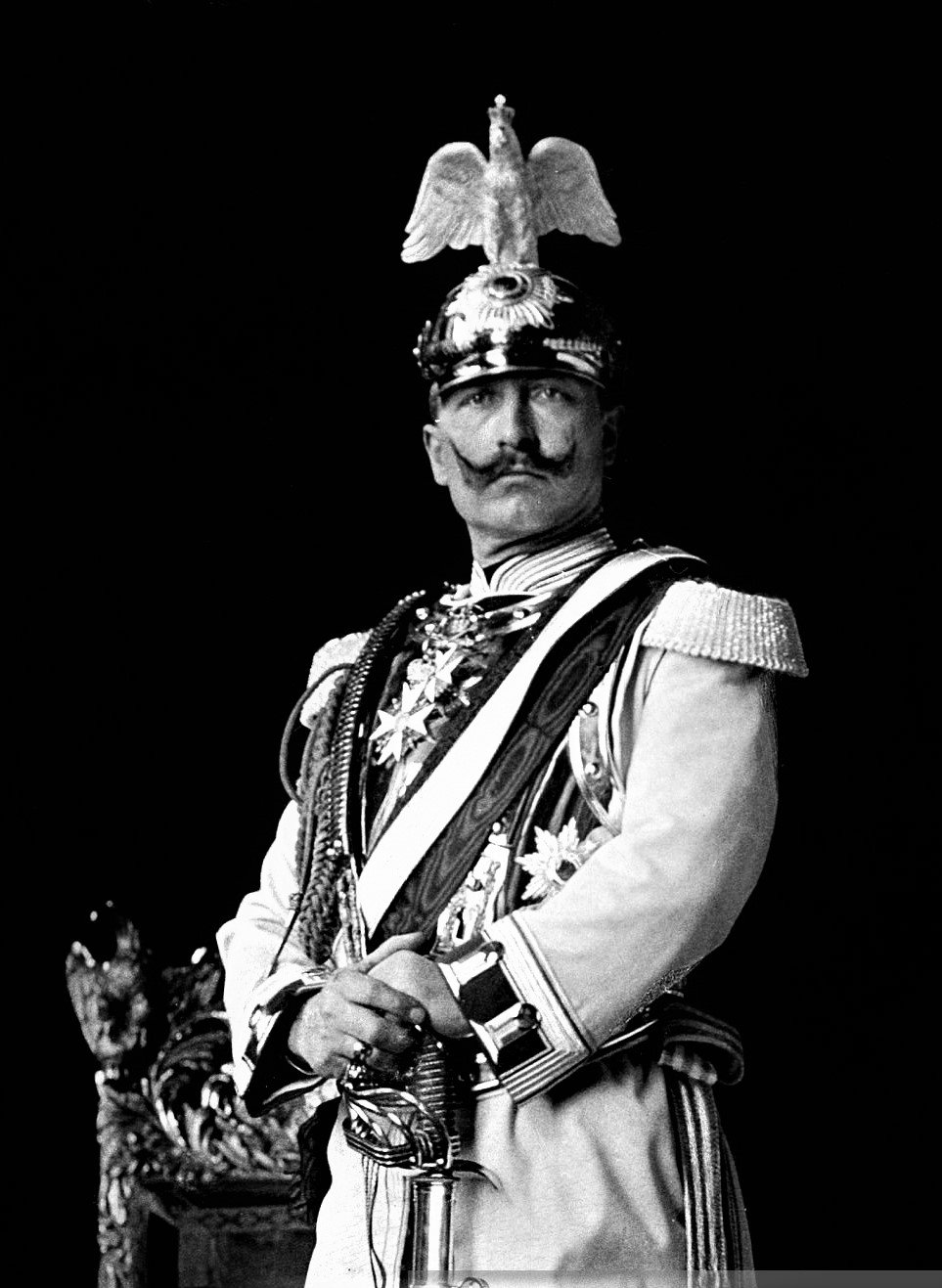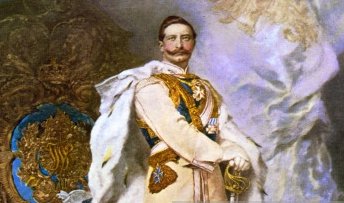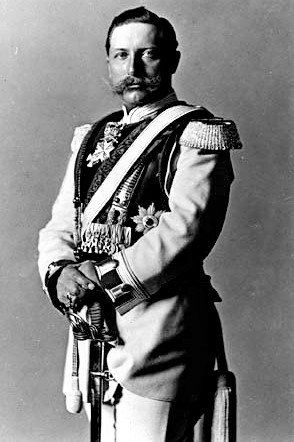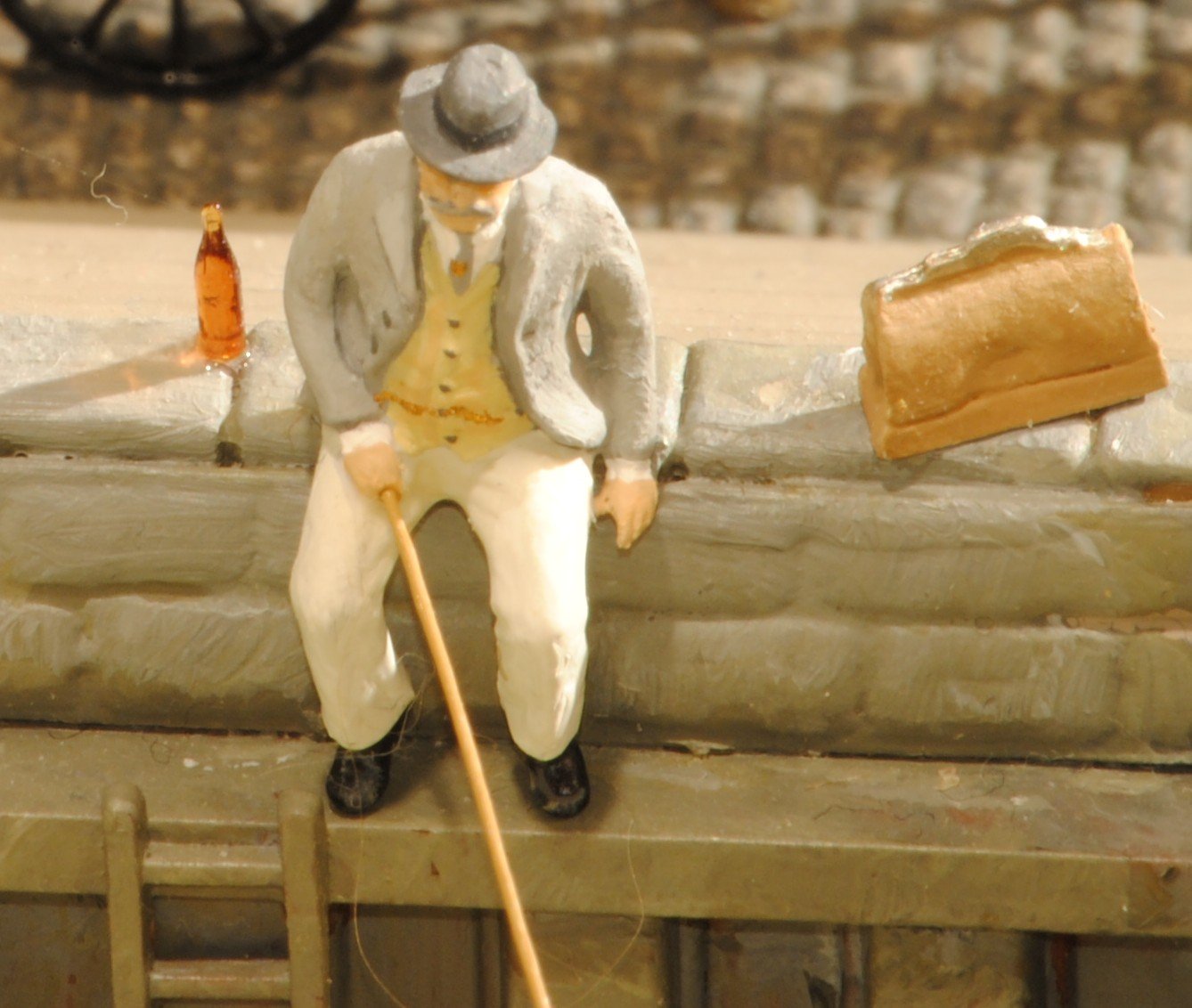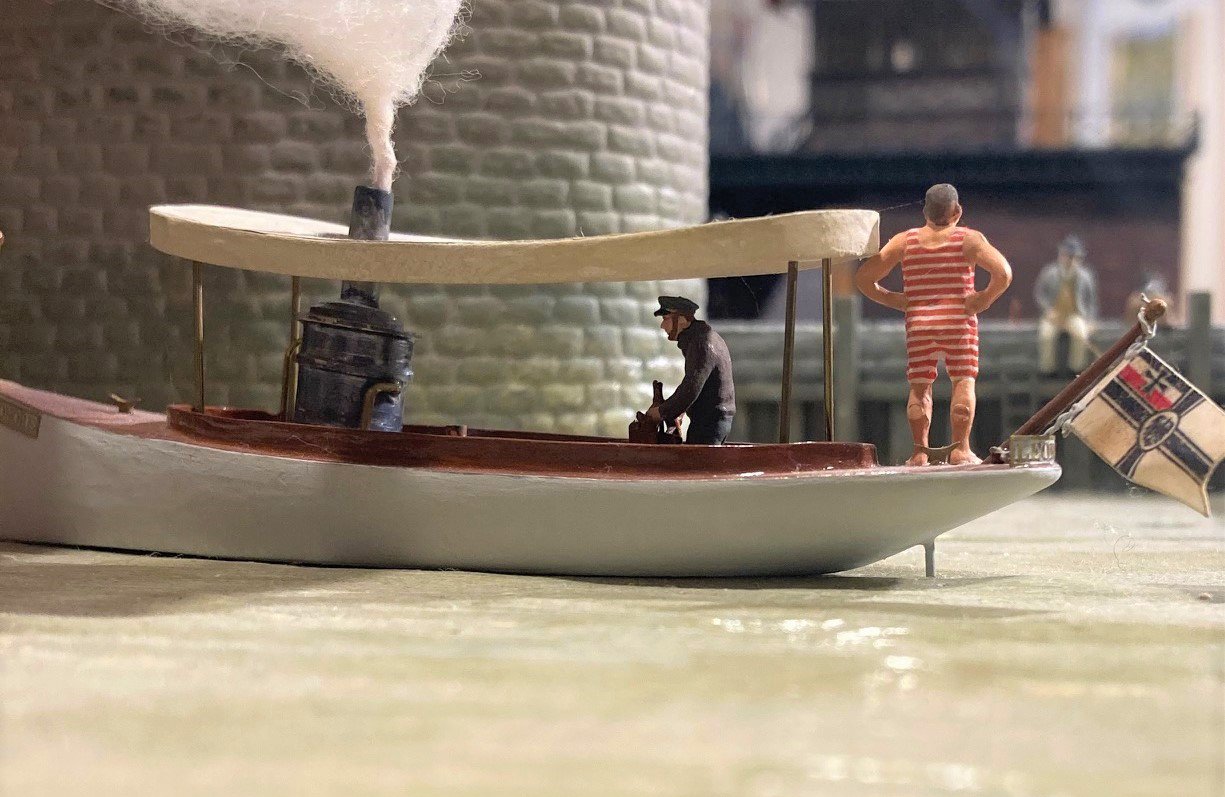
The Prince Goes Fishing
Brooding Upon His Emperor
I invented “Prince Gustav” to illustrate an important historical footnote. When visitors to The Collection ask: “Who’s that man fishing?” I tell them “He’s a prince of the royal house of Baden who so despises the Kaiser that he refused, this morning, to accompany the Grand Duke and his younger cousin, Prince Max, heir to the throne, to the station to greet the Kaiser. “Prince Gustav” represents a large number of the German people who are exasperated – alas, embarrassed – by their emperor, Kaiser Wilhelm the Second. Long before the imperial train was due, Prince Gustav slipped out of the palace and, in one of the small carriages from the royal mews, had himself driven to the Rhine where we now find him brooding upon his emperor and the reasons why His Majesty has so few genuine friends.
The Kaiser’s personality is brash and dismissive. He’s a classic “know-it-all” because, among other reasons, he has a huge inferiority complex. One cause is his withered left arm, the result of an accident while he was being born. His damaged arm is, of course, not his fault.
But his behavior, caused by it, becomes ever more unpleasant as he seeks to compensate for the effect he believes the arm has upon everyone who sees him: an imperfect man for the most important job in the empire – in the world, as he sees it.
Were he to possess even average humility, his subjects would bend over backwards to empathize, to help him – even to admire him. But he’s made meaningful human connections difficult, if not impossible. Instead of learning from Germany’s most gifted people, he lectures them at endless length on the very subjects they know better than he. Wilhelm appears terrified of anyone who might know anything he doesn’t. His reactions to all sorts of news are often grossly exaggerated and unrealistic.
The pictures here show him as a man who constantly inflated his own importance, very often in silly ways that made people laugh behind his back. Why is this important?
The Kaiser’s brashness and sense of superiority led to profound misjudgements. His fondness for the German armed forces led him to believe that armed conflict – or threatening it - was often the “correct” way to solve diplomatic problems. He viewed his navy, a personal pet project, as a grandiose form of intimidation of Great Britain for her dominance of the high seas, though the British were more apt to laugh at him than to fear him. 1914 changed that. He was soon seen as an ogre, though he was actually cowardly. His increasingly meddlesome nature became more and more irritating to his subjects. His most grandiose misjudgement was the First World War, which he easily could have prevented.
And so “Prince Gustav” sits there as evening arrives, sipping from his very ordinary brown beer bottle, dreading the antics his emperor will get up to next. So far, there aren’t any fish in his bag, but he’s having a lively shouted conversation with the man in the striped bathing suit.
Dinner this evening will be at the home of a couple he’s known for years, a much more pleasant time than he’d endure at the banquet in the Palace to flatter his emperor.


